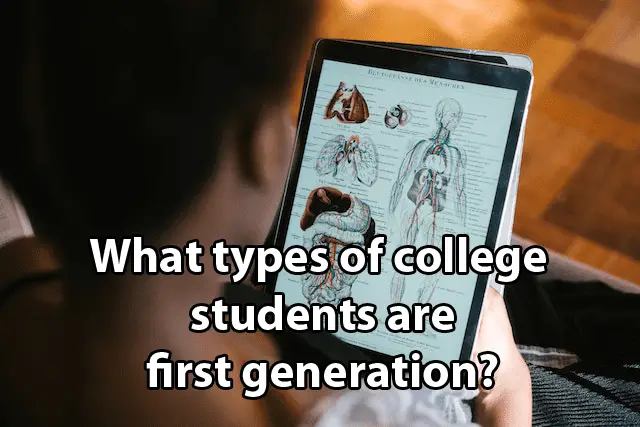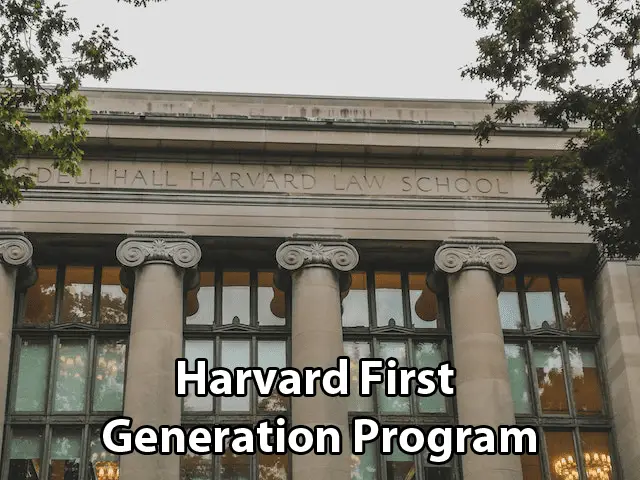
The journey to higher education can be challenging for any student, but it poses unique challenges for first-generation scholars. However, with perseverance and access to the right resources, they can successfully navigate this path and achieve their academic aspirations.
Understanding First-Generation Students
First-generation students are those who are the first in their families to attend college. These students often face obstacles such as a lack of guidance at home, financial constraints, and the intimidation of navigating an unfamiliar educational system.
Empowering the Future: Opportunities for First-Generation Students through Scholarships
One of the most effective ways to assist first-generation students is through scholarships. Scholarships provide crucial financial support, allowing students to focus more on their studies instead of worrying about tuition fees. Numerous organizations and institutions offer scholarships specifically for first-generation scholars, recognizing their potential and the unique challenges they face.
Bridging the Financial Gap
Many first-generation students come from low-income households, making college seem like an unattainable dream. Scholarships such as the ‘$2,000 Creative Writing Fellowship in Ireland, 2024‘ provide much-needed financial assistance. Programs like these not only alleviate the financial burden but also open doors to experiences and opportunities that enrich the academic journey.
Accessing Scholarships and Grants
To access these funds, students must research and apply for scholarships that cater to their needs and qualifications. Schools often provide resources, like financial aid offices and guidance counselors, to assist students with finding suitable scholarships. Institutions may also offer workshops on writing effective scholarship essays and completing applications.
The Importance of Mentorship
Having a mentor can be a game-changer for first-generation students. Mentors provide guidance, support, and advice on navigating college life, from choosing classes to balancing school and personal life. Many universities have mentorship programs where first-generation students can connect with faculty, staff, or older students who can help them succeed.
Building a Support Network
Creating a support network is crucial for first-generation students. This network can include peers, family members, mentors, and university staff who provide emotional and academic support. Participating in student groups and clubs also helps first-generation students build friendships and find a sense of community on campus.
Preparing for the Application Process
The application process can be one of the most daunting aspects of pursuing higher education. For first-generation students, it’s essential to start early and seek help when needed. Many high schools offer college preparation programs that guide students through the application process, including seeking out scholarships such as the ‘$2,000 Creative Writing Fellowship in Ireland, 2024’.
Utilizing University Resources
Once enrolled, first-generation students should make the most of university resources. Academic advising, tutoring centers, mental health services, and career counseling are vital for sustaining academic performance and well-being. Many universities offer specific programs and resources for first-generation students to ensure their success.
Overcoming Imposter Syndrome
First-generation students often struggle with imposter syndrome, feeling like they don’t belong or aren’t capable of succeeding. Addressing these feelings is crucial for their academic and personal development. Universities may offer counseling services or support groups to help students overcome these challenges.
Expanding Horizons through Fellowships and Internships
Beyond scholarships, fellowships and internships provide invaluable experience and networking opportunities. Encouraging first-generation students to apply for opportunities like the ‘$2,000 Creative Writing Fellowship in Ireland, 2024’ can lead to personal growth and career development. These experiences help students gain skills and confidence that are critical for their future careers.
The Role of Family Support
Family support is fundamental for first-generation students. Even if family members have not attended college, their emotional support and encouragement can significantly impact the student’s success. Families should be encouraged to learn about the college experience and how they can best support their student’s journey.
Community and Peer Support
Connecting with other first-generation students can provide a sense of belonging and mutual understanding. Many universities have student organizations dedicated to first-generation students, offering a platform for shared experiences and support. These groups often host events, workshops, and social gatherings that foster a supportive community.
Conclusion
Navigating the path to higher education as a first-generation student is undoubtedly challenging, but it is achievable with the right support and resources. Scholarships like the ‘$2,000 Creative Writing Fellowship in Ireland, 2024’ offer financial relief, while mentorship, support networks, and university resources address emotional and academic needs.
By seeking out and utilizing these opportunities, first-generation students can overcome obstacles and pave the way for a brighter future. Empowering the future through scholarships and support programs ensures that these dedicated students can realize their full potential and become leaders in their fields.

















